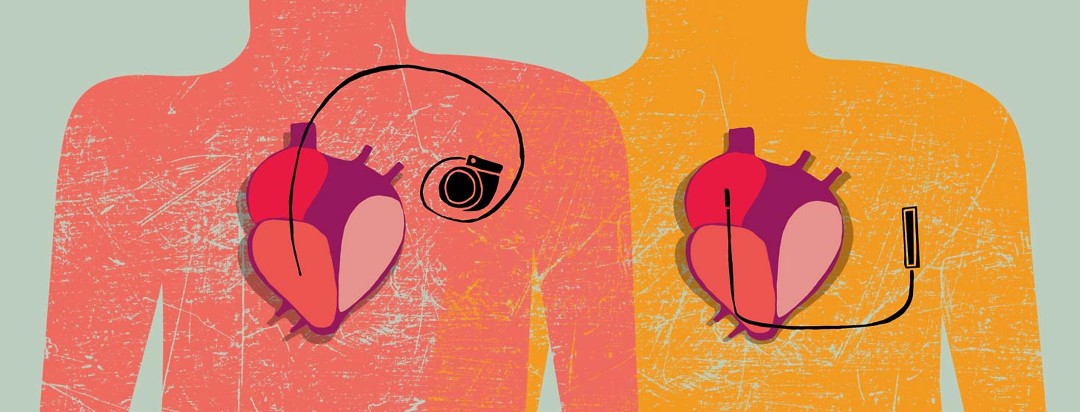Which ICD Is Best for You?
An implantable cardioverter-defibrillator (ICD) is a device you will probably need to decide if you want during your heart failure adventure. There are multiple types of an ICD, and the two I am going to talk about are the ones that have leads, or wires, that go into the heart, and ones that do not have leads. There are advantages to both, but you may not always get the information you need about them because some doctors stick to what they know and may not present you with multiple options. I just want to touch on them to give you a starting point to speak with your doctor.
My ICD does not have wires
The first kind, the one I have, is the ICD that does not have wires that go into your heart. I have the main part of the device placed under my left armpit and two parts that go over my heart which deliver a shock if I need it. I got this kind because I do not need a pacemaker or the ability to pace my heart. If you need any for of pacing this will not work for you.
The biggest advantage with this ICD is it is less invasive than one with wires. The doctor does not access my heart so surgical complications and complications after surgery are reduced. I also do not have any movement restrictions since there are no wires. The one big disadvantage, at least in my mind, is with this type of ICD, they use a drug to put my heart into a lethal rhythm to make sure the ICD works. Even though the environment is controlled, there is still a slim chance it could be fatal.
The ICD with wires
The other kind of ICD is one with wires that connect to your heart muscle. With this surgery, the doctor must go into your heart to attach the wires. This will provide any pacing capabilities you may need along with defibrillating if needed. This is probably the most common type installed, but it isn’t always the best option for everyone.
One advantage of this is your heart does not need to be put into a lethal rhythm during the surgery. Since the wires are attached to your heart, it’s assumed it will work when needed. Another advantage is if you need pacing, even if it’s in the future, you won’t need a new device implanted.
There are a few disadvantages to this one that you should consider in case you don’t need pacing. The first one is with the wires going into your heart, those wires are going through a valve. When your heart beats, those wires are touching those valves. Over time, this can cause issues with your valve. You can also have issues with the attachment point of wires. These both typically happen over a longer period, so if you are a younger person getting this device, you may want to mention these concerns to your doctor. Also, don’t forget with this being invasive to your circulatory system and your heart, there is an increased chance of complications related to the surgery.
Make the best decision for you
These are not meant to scare you from getting the surgery or refusing a device. This is a common procedure and in my opinion, well worth it. Use this to help formulate questions to ask and work with your doctor to make the best decision for you.
Do you have a heart failure story? Click the button below to share with our community!
A community member is looking for other people's experiences with an ICD. Share your experience here.

Join the conversation